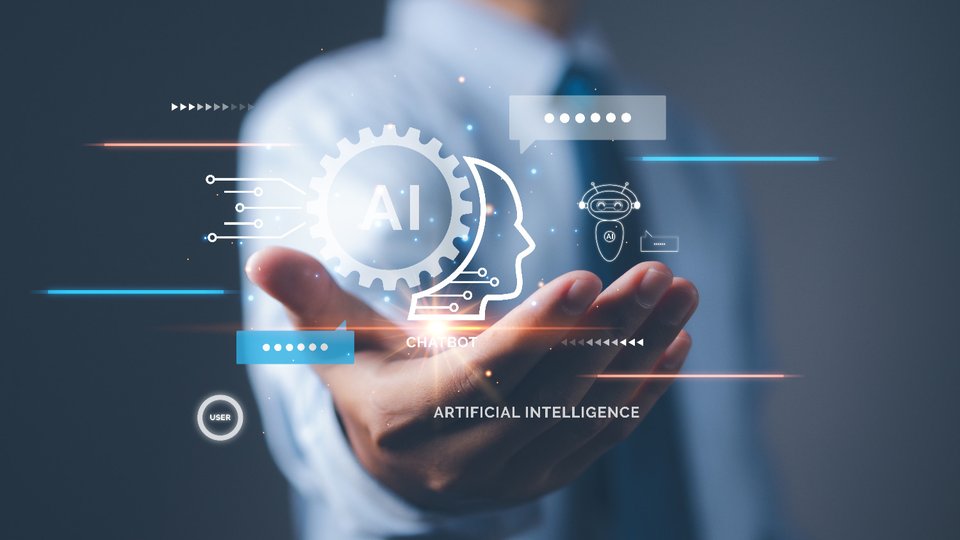Technology
Amid tightest labor market in modern history, retailers must rethink growth to scale
Implementing AI is no longer a retailer choice, nor is it only confined to the realm of routing and delivery speed.

March 6, 2024 by Ziv Fass — Co-Founder & CEO, Package AI
As of last May, 829,000 retail jobs in the U.S. remained unfilled, according to the US Bureau of Labor. A October 2023 study revealed the labor shortage may even get a whole lot worse, with more than 62% of hourly employees planning to leave their jobs within the next 12 months.
For retailers, customer experience, efficiency, bottom lines, and virtually everything else is at risk, but it also presents a clear case as to why strategically implementing AI solutions is an unprecedented opportunity.
Far from the doom and gloom predictions, implementing AI is a way retailers can maintain or improve quality, expand market share, and delight customers — as long as it's done right.
AI is great, but it's not a cure-all
According to Statista, 11% of consumers reported being "very happy" when interacting with chatbot customer service, and 43% were either "not happy" or "not happy at all." The reason is obvious: most AI chatbots provide generic responses and aren't connected to a company's CRM, inventory, or logistics. Even when they are, an AI chatbot in 2024 cannot answer every question, leaving plenty of cases where customers end up frustrated and with no real outlet to solve their issues. A few attempts at Googling "how to reach a human at X" later and the customer's lifetime value to the retailer is put on hold, often permanently.
Despite challenges, retailers can't give up on AI
Aside from the fact that a historic labor shortage is making hiring difficult, the unique human requirements in retail — especially when it comes to certain deliveries — make abandoning AI and other tech solutions nearly impossible. Consider some typical calls and requests: "Why hasn't my package been delivered?" "I'd like to change the delivery time from X to Y," "The item isn't as described, how can I return it?" In the vast majority of cases, a customer service agent can't handle them alone and needs to gather information, often from a colleague, who can look into a completely separate system for logistics. If the delivery is large home furnishings or any type of big and bulky package, coordination with the installer and other delivery professionals who can help is also a factor and is difficult to optimize.
Finding a "humanized" AI middle ground
Combining trained customer service agents with AI is the only viable way forward to cut costs while improving customer relationships, but finding the right balance isn't easy. First and foremost, any AI needs to be "humanized," instead of being a generic, out-of-the-box product with a limited set of answers. That means making the service into a two-way conversation, by utilizing the entire customer journey with data — including all sales, CRM, and fulfillment information. Not only does it mean better service, but it opens up possibilities to cross-sell and up-sell even before getting to a human. Equally important is the ability to cut down the bureaucracy by uniting logistics with CX to streamline the ability to get answers and adjust deliveries without a hassle for customers and customer service agents alike. Lastly, taking that experience and ensuring it's great every time means allowing an easy handoff from AI to humans in complex or fringe cases, which occur with regularity.
Trickle-down effect is enormous, especially when it comes to complex deliveries
Failed deliveries are a well-known profit killer, impacting staff time, gas, wear and tear, customer retention, and the list goes on. Implementing humanized AI ensures that customers can be updated more accurately and at home when a delivery arrives. Further, if issues do arise, it allows for rescheduling in real-time that can take into account the coordination necessary for complex deliveries and optimize it, meaning that a new couch or major appliance doesn't need to wait another few days. That flexibility and the corresponding cost reduction also lead to a customer experience improvement, meaning less churn, more lifetime value, and more positive reviews that spur even more customers and value.
Implementing AI is no longer a retailer choice, nor is it only confined to the realm of routing and delivery speed. Successful implementation will break down barriers between logistics and CX, take into account order history and real-time routing, and crucially, create a seamless handoff to humans to deal with the more difficult "fringe" cases.
Such an approach reduces the impact of labor shortages, safeguards reputation, and has trickle-down benefits that magnify the positives, especially when it comes to the most complex deliveries. While there is no one-sized solution to achieve the perfect balance, a sensible, streamlined combination of AI and humans is the best bet to deliver.
 ChatGPT
ChatGPT Grok
Grok Perplexity
Perplexity Claude
Claude




